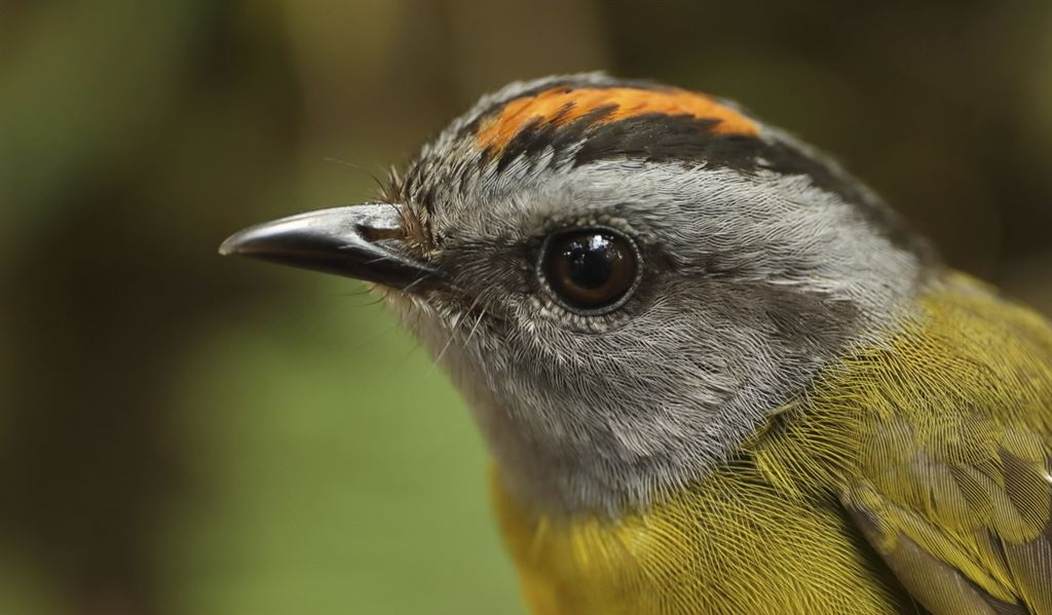Cancel culture is coming for the birds. Starting in 2024, 70 to 80 North American bird species boasting English names will be renamed.
The American Ornithological Society (AOS), a group born out of the 2016 merger between the American Ornithologists' Union and the Cooper Ornithological Society, announced on November 1st its Council is renaming birds like the Cooper’s Hawk, Wilson’s warbler, Wilson’s snipe, and Audubon's shearwater, for example, to “more descriptive monikers” that don’t affect scientific names. Why? The AOS is committed to changing English-language names of birds and names that have been deemed “offensive and exclusionary.”
“There is power in a name, and some English bird names have associations with the past that continue to be exclusionary and harmful today,” AOS president Colleen Handel said. “We need a much more inclusive and engaging scientific process that focuses attention on the unique features and beauty of the birds themselves. Everyone who loves and cares about birds should be able to enjoy and study them freely.”
“These patterns of underrepresentation continue due to accumulated disparities in material wealth and other capital, coupled with rules established by groups in power that undervalue marginalized groups who are judged by those rules,” the group continued. “The result of these barriers is that, by the time full-fledged scientists have arrived at an opportunity to name newly described species and wish to recognize their colleagues, many demographics are scarcely represented. Also, substantial inequities in the process of naming birds relate to differences in wealth, power, and scientific capacity among countries.”
This effort was born out of a petition from a group called Bird Names for Birds. It, unsurprisingly, attributes these longstanding “offensive” names to colonialism when “(primarily) European countries subjugated, exploited, and populated territories held by non-white peoples.”
“By continuing to use eponymous common bird names, we continue to reference and honor our distressful colonial heritage and the racism that was a direct consequence of this malicious exploitation. This is unacceptable, and we must do better,” the group argues.
Recommended
As Climate Depot publisher Marc Morano observed, name erasure - like NASA renaming cosmic objects in 2020 – is second nature to the Left.
“As an initial step, NASA will no longer refer to planetary nebula NGC 2392, the glowing remains of a Sun-like star that is blowing off its outer layers at the end of its life, as the “Eskimo Nebula.” “Eskimo” is widely viewed as a colonial term with a racist history, imposed on the indigenous people of Arctic regions. Most official documents have moved away from its use. NASA will also no longer use the term “Siamese Twins Galaxy” to refer to NGC 4567 and NGC 4568, a pair of spiral galaxies found in the Virgo Galaxy Cluster. Moving forward, NASA will use only the official, International Astronomical Union designations in cases where nicknames are inappropriate,” NASA said in a statement at the time.
This crusade is similar to cancelation efforts of two godfathers of the American conservation movement: former President Teddy Roosevelt and naturalist John Muir.
In 2022, the American Museum of Natural History removed a statue of T.R. - a hunter conservationist and president who established the National Park Service (NPS). The New York Post Editorial Board countered, “The artwork was commissioned a year after Roosevelt’s death as part of a larger state memorial to honor the ex-New York governor and one of the most popular presidents in US history. It was also intended to celebrate his work in conservation and as a naturalist and his ties to the museum. Roosevelt’s father was one of the museum’s founders, and the president himself often donated specimens from his hunts to various exhibits.”
Following the nationwide Black Lives Matter protests in 2020, groups like the Sierra Club denounced its founder and Yosemite National Park champion, Mr. Muir, for being a racist. Kim Stanley Robinson, a Sierra Club member and noted eco author, chided the group’s executive director for erasing its founder, writing, “Muir was not a racist, and indeed in the context of his time, he was a tolerant and generous figure, worthy of respect both then and now.”
The Sierra Club has far more problems to concern itself with than John Muir. Recently, the preservationist environmental titan became embroiled in scandals over laying off non-white employees and its entire equity team–despite pledging to prioritize diversity, equity, and inclusion (DEI).
If birding is so exclusionary and racist, why is it the most popular outdoor activity - even more than hunting and fishing - in terms of participation? Why are more minorities taking up birding today if it’s so exclusionary? It’s not. Like other outdoor activities, birding is inclusive, welcoming, and doesn’t care what you look like.
A 2016 U.S. Fish and Wildlife Service (USFWS) National Survey of Fishing, Hunting, and Wildlife-Associated Recreation found 86 million Americans- or 34% of the population then - engage in wildlife watching activities–including birding. It also said birds attract the “biggest following” with over 45 million Americans viewing birds in their backyards or during trips during that year.
As an amateur birder, I’ve never heard seasoned birders – including my more lefty friends in this space - lose sleep over English-named bird names.
There are bigger fish to fry–like preventing bird species, including the imperiled Bachman’s warbler, from going extinct. Nevertheless, it’s easier for preservationist environmentalists to squawk about bird names than address their myriad failures and extreme positions.

























Join the conversation as a VIP Member